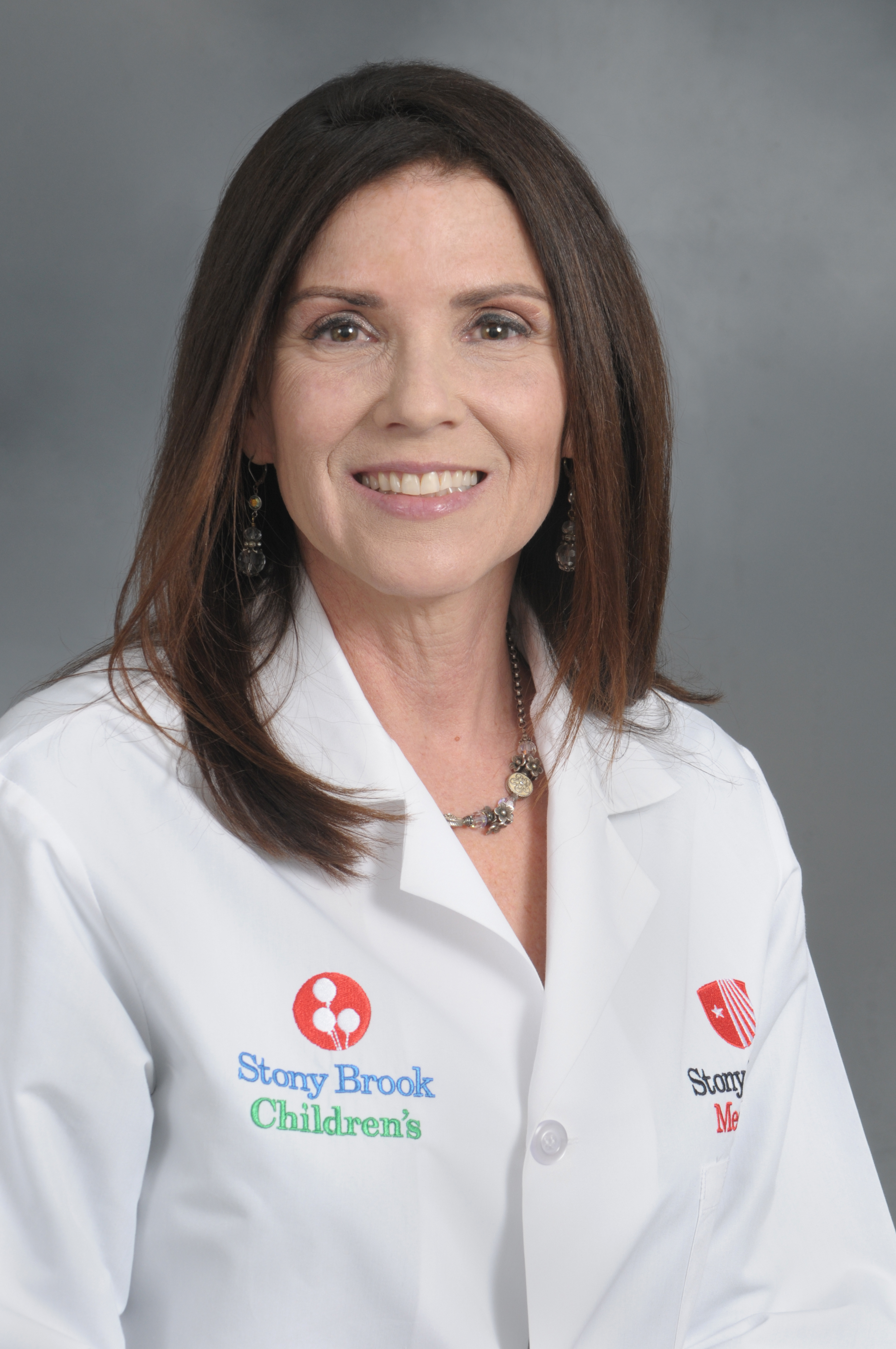Spotlight: A Commitment to Compassionate Care

Written by Amanda Martocello, School of Nursing
September is Childhood Cancer Awareness Month, a time to recognize the resilience of young patients and the tireless work of those who care for them. We had the honor of speaking with Debra Giugliano, PhD, RN, CPNP, CPON, a dedicated pediatric nurse practitioner at Stony Brook Children’s Hospital and the director of simulation education at the School of Nursing.
Dr. Giugliano shared her insights on a career spanning over 34 years in the field of pediatric hematology and oncology. A triple alumna of the School of Nursing, she credits her parents—a nurse and a teacher—as her inspiration.
A Career Devoted to Young Patients
"I began my nursing career at Stony Brook more than 34 years ago, and my experiences with pediatric hematology and oncology patients and the challenges they face motivated me to dedicate my career to this field," Dr. Giugliano said. Her work, she notes, is a reflection of a "longstanding commitment to improving the lives of young patients and their families, particularly through providing medical, educational, and psychosocial support."
As a certified pediatric oncology nurse with over 25 years of experience in the specialty, she has witnessed incredible progress.
"Throughout my career, I have witnessed numerous advancements, including improvements in treatment protocols and increased emphasis on quality of life issues and supportive care," she shares.
Dr. Giugliano is an active member of the Association of Pediatric Hematology/Oncology Nurses and the Children’s Oncology Group (COG), a clinical trials group supported by the National Cancer Institute. As a COG research team member, she is involved in a wide range of studies, from therapeutic and supportive care trials to diagnostic studies and long-term effects research.
Understanding Childhood Cancer
"Unlike adult cancers, childhood cancers often involve different types of tumors and may present with distinct biological behaviors," Dr. Giugliano explains when asked about the differences between childhood and adult cancers. The most common types of cancer in children include leukemia, brain tumors, neuroblastoma, and Wilms’ tumor. She adds that pediatric cancers "generally require combination treatment approaches with intense and prolonged chemotherapy."
Recognizing symptoms early is key.
"Common signs of childhood cancer can include unexplained weight loss, persistent pain, lymphadenopathy or swelling, and unusual bleeding," she notes, emphasizing that diagnosis often involves a combination of physical exams, imaging studies, biopsies, and blood tests. For treatment, the options include chemotherapy, radiation therapy, surgery, and targeted therapies.
"Survival rates for childhood cancers have improved markedly due to advancements in treatment and early detection," she states. This progress is a result of better treatment protocols, supportive care, and ongoing research, as well as a deeper understanding of cancer biology.
Challenges and the Future of Care
Despite progress, significant challenges remain, particularly the long-term effects of treatment.
"One of the biggest challenges in treating childhood cancer is managing the long-term effects of treatment, such as cognitive and physical impairments," she explains. "The incidence of late effects in childhood cancer is two out of three."
However, Dr. Giugliano is optimistic about the future, citing recent advancements such as the development of immunotherapies and targeted therapies that specifically attack cancer cells while sparing healthy ones.
She emphasizes that it is crucial for discovering new treatments, understanding the long-term effects, and enhancing patient care. Current research, she says, is focused on reducing treatment-related toxicities, enhancing psychosocial support, and developing personalized treatment approaches.
Support, Awareness, and Personal Rewards
Support systems are crucial for families navigating this difficult journey. The treatment team works closely with families, schools, and communities to provide open communication and emotional support.
There are numerous resources available, including support groups, financial aid, wish-granting programs, camps, and educational support through programs such as Stony Brook’s School Intervention and Re-entry (SIRE) Program. "These resources help families navigate the complexities of cancer treatment and its impact on daily life," she says.
Dr. Giugliano encourages the public to get involved during Childhood Cancer Awareness Month by participating in fundraising events, supporting advocacy groups, and sharing information through social media and community networks. She notes that the gold ribbon symbolizes pediatric cancer awareness, "because gold is a precious metal and represents the value of children."
When asked for advice for aspiring pediatric oncology nurses, she offers a powerful message: "Be deeply committed to patient care, stay curious and engaged with ongoing research, and develop a strong foundation in both clinical skills and compassionate care." She also advises them to join professional organizations and become certified.
"Working with these children and families has been tremendously rewarding and fulfilling," she concludes with a smile.